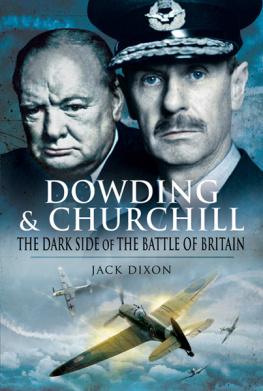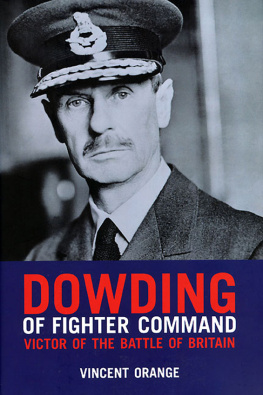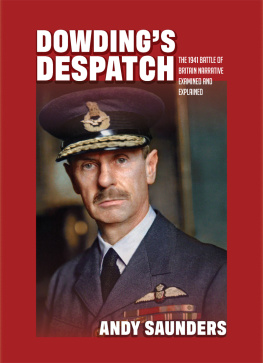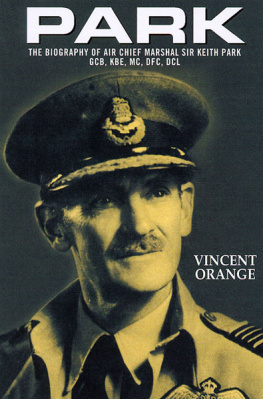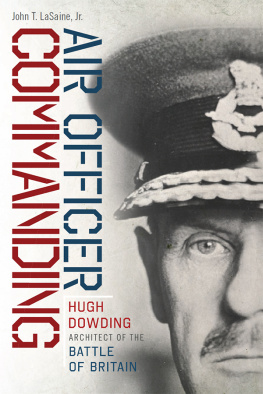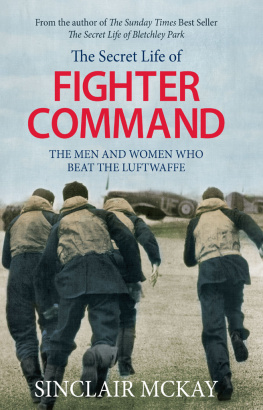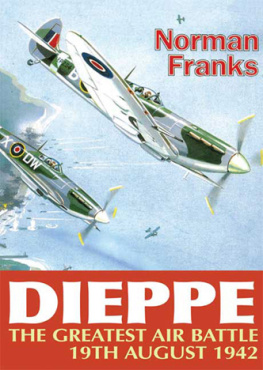
First published in Great Britain in 2008 by
Pen & Sword Military
an imprint of
Pen & Sword Books Ltd
47 Church Street
Barnsley
South Yorkshire
S70 2AS
Copyright J.E.G. Dixon, 2008
PRINT ISBN: 978 1 84415 854 6
EPUB ISBN: 9781844685783
PRC ISBN: 9781844685790
The right of J.E.G. Dixon to be identified as author of this work
has been asserted by him in accordance with the
Copyright, Designs and Patents Act 1988.
A CIP catalogue record for this book is available from the British Library
All rights reserved. No part of this book may be reproduced or transmitted
in any form or by any means, electronic or mechanical including
photocopying, recording or by any information storage and retrieval system,
without permission from the Publisher in writing.
Typeset by S L Menzies-Earl
Printed and bound in England by Biddles
Pen & Sword Books Ltd incorporates the imprints of:
Pen & Sword Aviation, Pen & Sword Maritime, Pen & Sword Military,
Wharncliffe Local History, Pen & Sword Select,
Pen & Sword Military Classics, Leo Cooper, Remember When,
Seaforth Publishing and Frontline Publishing.
For a complete list of Pen & Sword titles please contact:
Pen & Sword Books Limited
47 Church Street, Barnsley, South Yorkshire, S70 2AS, England
E-mail:
Website: www.pen-and-sword.co.uk
Contents
Epigraph
The only commander who won one of the decisive battles in history and who got sacked for his pains.
MRAF Sir Arthur Harris
The peace and happiness of thousands of millions unborn, through countless generations to come, depended directly on his decisions.
C.S. Forester
To him, the people of Great Britain and of the free world owe largely the way of life and the liberties they enjoy today.
Inscription on Dowdings statue in The Strand, London
It is a great pity that the war is so affected by these human considerations, but there it is.
Sir Henry Tizard
For the very first time the continued existence of the Army and the Navy became totally dependent for their protection upon the RAF.
While the bitterness of their pill may have been masked at the time by the common threat, the inescapable facts of the Battle of Britain meant that things would never be the same again.
Norman F. Dixon
Why did we get rid of Dowding, who did something ?
ACM Sir Wilfrid Freeman
It is dangerous to be right when the powers are wrong.
Voltaire
Preface
A Personal Note
When war was declared against Germany on September 3rd 1939, I was a fifteen-year old schoolboy living on the coast of East Kent. As a family we listened to the lugubrious voice of the defeated Neville Chamberlain as it came across the wireless announcing war. Ten minutes later the air raid sirens wailed for the first time, we took the only cover available. Our house and back garden abutted onto a private girls school. The school was empty for the summer holidays. (As it happened, they never came back and the school closed down.) We knew of a dug-out in the school garden, which had been excavated at the time of the Gotha bombings of the First World War. We all trooped round and sat on mouldy wooden benches in the dank and musty atmosphere, fearful and curious, until the all clear sounded fifteen minutes later.
In December I was forced by family circumstances to leave school, and my mother, now a widow of thirty-seven, had to do something about her five children, aged from seventeen to nine years old. Her solution was to enter me as an apprentice in the RAF, without, so far as I recollect, my having any say in it. That was the way things were done in those days, and it is not necessarily the worst way.
In the intervening nine months I found various makeshift jobs, until the time of Dunkirk when invasion threatened. We had been invaded previously: why not again? All the invasions of England, or attempted invasions, had taken place where I lived, or not far off. One of the many measures taken by the authorities to make invasion difficult for the enemy was the erection of telephone poles in the open fields of southern England, as an obstacle to paratroops and gliders. For the next two months I toiled away for twelve hours a day Monday to Friday, and ten hours on Saturday. We were graciously allowed Sundays off.
When that work terminated I had two weeks left. Mothers being mothers, I was not allowed to idle my time away. A local farmer needed a hand to hoe a field of vegetables: I was sent. The farm turned out to be on the south side of the aerodrome of RAF Station Manston. It was during those two weeks in August that Manston was bombed to smithereens. Episodes such as this brought home to us the reality of war fought almost in our front garden. Everyone knew the odds and what was at stake. We knew that invasion was a likelihood; and we knew with even greater certitude what the consequences would be in the event of our failure. It is true to say that every man, woman and youth was prepared to tackle the enemy with garden forks if any had the audacity to land in their street.
In September I left to join the RAF at Halton. The invasion scare was still alive throughout the country. We apprentices were given a crash course in oxy-acetylene welding, and were put to work to make weapons. The weapons were six-foot lengths of one-inch steel pipe, to one end of which we welded three wedge-shaped pieces of steel plate so that they came together at a point. They were called pikes. We made hundreds of them in the next two weeks, and they were issued to reserve units of the Army, and to elements of the Local Defence Force (the forerunner of the Home Guard, made endearing in the comic tv series, Dads Army). We jokingly boasted that our efforts must have been successful, for there was no invasion.
I thought no more of the Battle of Britain for the following twenty-eight years until, that is, the showing of the movie. It set me to reading. If there was one thing about the Battle that mystified me it was the removal of Dowding from Fighter Command after he had won the Battle. And not only Dowding, but Park as well.
Some writers, apparently sympathetic to the received version, put out explanations which did not add up. The facts are these: 1) the Battle of Britain was an action which posed a threat to England on a scale unseen since 1066; 2) Dowding and Park were, respectively, the strategist and the tactician who engineered the victory; 3) Dowding and Park were removed from their commands shortly after the Battle had been won, and seen to be won.
In 1988 I began to concentrate my studies on the third item Soon a fourth factor emerged: Dowding and Park were replaced by two men who proceeded to demonstrate their unfitness for their commands. Little by little, a picture began to take shape and substance. I was assailed by a searing sense of injustice. I published the results of my inquiries in 2003 in a paperback with the title, The Battle of Britain: Victory and Defeat; the present book is a revised, up-dated, enlarged and partly rewritten version of this. I have pillaged it for material I needed in order to avoid re-writing it. It was, in any event, out-dated, diffuse, unfocused and insufficiently objective.
In the present work I have gone beyond my early findings and stress the greatness of Dowding and his struggle against lesser people who, consumed with fear and eaten with ambition, abused their power to denigrate him to their advantage. I also stress the moral divide that separates the loyal men and women in operational roles from the planners and power-brokers in the higher echelons of the Service who, being engaged in the race to the top, are more intent on pursuing their own interests than on doing their duty and serving their country. Finally, I feel constrained to dwell on the unwholesome evidence which shows that, whereas the terms of service of the officers and men and women working at the sharp end bind them to a personal responsibility for the work they do, the very people at the top who dictate those terms of service are careful to ensure that they are never caught in the trap of accountability. Even more regrettably, I find that Trenchard is the chief agitator behind the campaign to denigrate Dowding and the architect of Dowdings removal.
Next page
